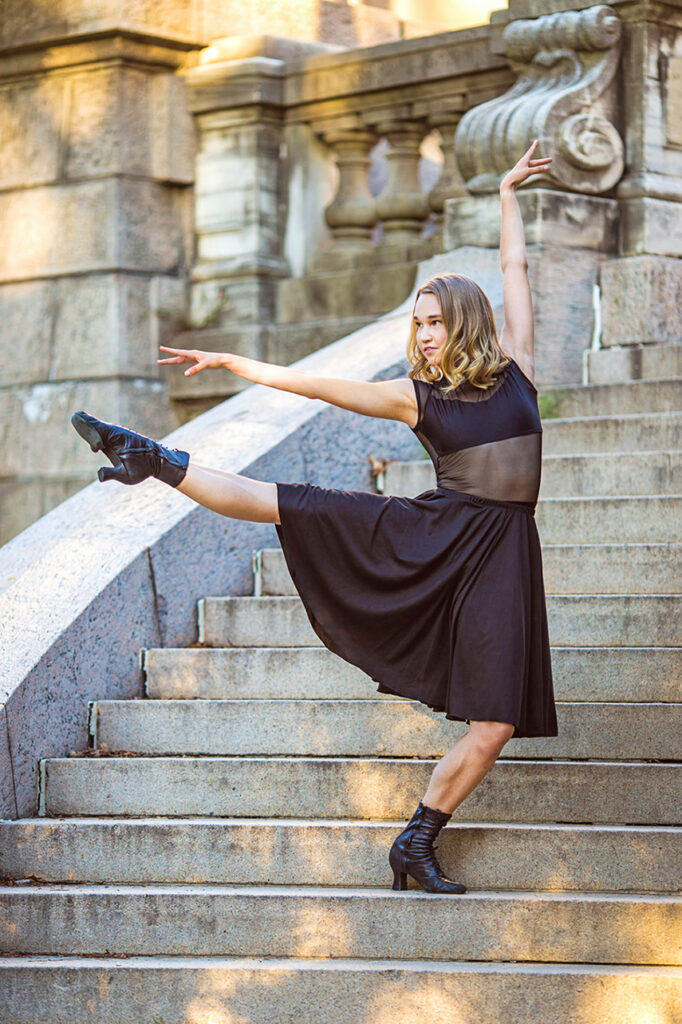I’ve been an anxious person and a perfectionist for as long as I can remember. I was devastated over an A-minus on a test, I would stretch until I cried, I would go over a dance I knew well a million times consecutively before going onstage, and my brain concocted endless worst-case scenarios. As a child, I didn’t understand what anxiety was; I also didn’t understand that it can reach a level that exceeds a body’s capacity to manage it.
I began dancing at the age of 3 and continued through my high school graduation. In 2014, I moved to New York City to attend Pace University’s commercial-dance program. Shortly after that and prior to graduating college, I booked my first professional show dancing as a Radio City Rockette. When I began Rockettes rehearsals, I was simultaneously finishing college and maintaining my status as a full-time student. While my anxiety and perfectionism followed me from a very young age, I began experiencing anxiety and depression physically during this period.
I started to have massive panic attacks and bouts of depression that kept me from getting out of bed. I started to fear auditions, performances, and even dance classes where people would watch me and think I was getting worse. I would beat myself up for the days that my depression took hold because I had wasted the time I could have been using to train.
Often, as a dancer, you learn to push through. It’s looped into talks about work ethic and moving forward despite any sort of obstacle. “Put your head down and work hard, leave it at the door, no excuses” is what I heard constantly in different ways.
Fast-forward to my sixth season dancing as a Rockette: I’d been pushing through it all and forcing myself to stuff my anxiety away, deep down. We had moved from the rehearsal room and onto the stage, preparing for the show to soon open. Suddenly, and much to my confusion, I couldn’t swallow. My body just wouldn’t allow it. I couldn’t eat, and I was struggling to get sips of water down. I also began dissociating during rehearsals. I would begin a dance number and slip into what almost seemed like subconsciousness. Suddenly, I’d be at the end of the dance, with very little awareness of what had just occurred. All of this chaos sent me into panic attacks that I tried so hard to hide, but my ability to do so was slipping away.
In the middle of what felt like an absolute tornado, there was this voice inside of me yelling at me to “STOP.” In that moment, and from a place deep in my gut, I made the difficult, but immediate, decision to withdraw from the show. I knew something was wrong and that I needed help.
What I’ve learned is that I became stuck in my body’s fight-or-flight mode. When a person’s body is activated in this way, some processes of the body are put on reserve for the body to focus its energies in other places, like giving muscles extra power to evade danger. One of these paused processes is digestion, and when it goes on reserve, the esophagus contracts. If the body remains in this fight-or-flight mode, the esophagus remains contracted and the brain does not register that there is enough room to swallow.
When this was explained to me, I felt sudden relief. I felt seen and understood and not crazy. I was able to receive medication and therapy that helped my body recover. I began learning ways to manage my perfectionism and depression. If I hadn’t stepped away, my body and mind would not have been able to heal, and things would have progressed to a very dangerous point.

The glorified mentality of pushing through hard times and not giving up that we often learn as dancers was such a hurdle for me at first because, when stepping away from my job, I felt like a failure. I felt embarrassment and shame. I wanted to hide. However, what I learned is that sometimes the unequivocal answer is to stop—and stopping does not mean failing.
Our mental and physical health are much more important than any job, any success, or any opportunity. I teach so many young dancers now, and if I can pass on one thing, it’s to normalize and talk openly about mental health. I still believe in working hard and developing the drive to power through feelings of nerves and fatigue. That’s what makes us athletes. But not when it compromises our mental health and well-being.


